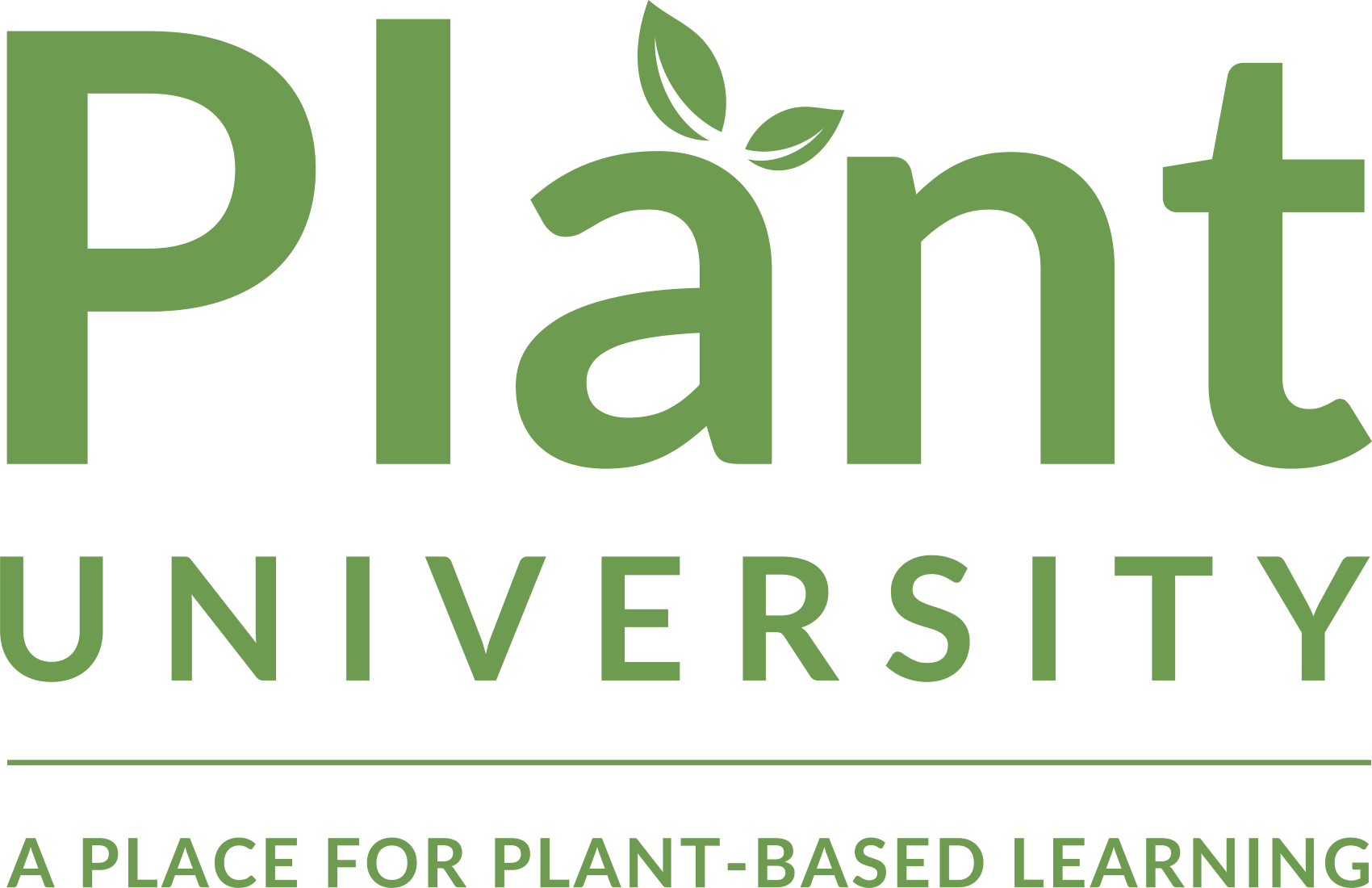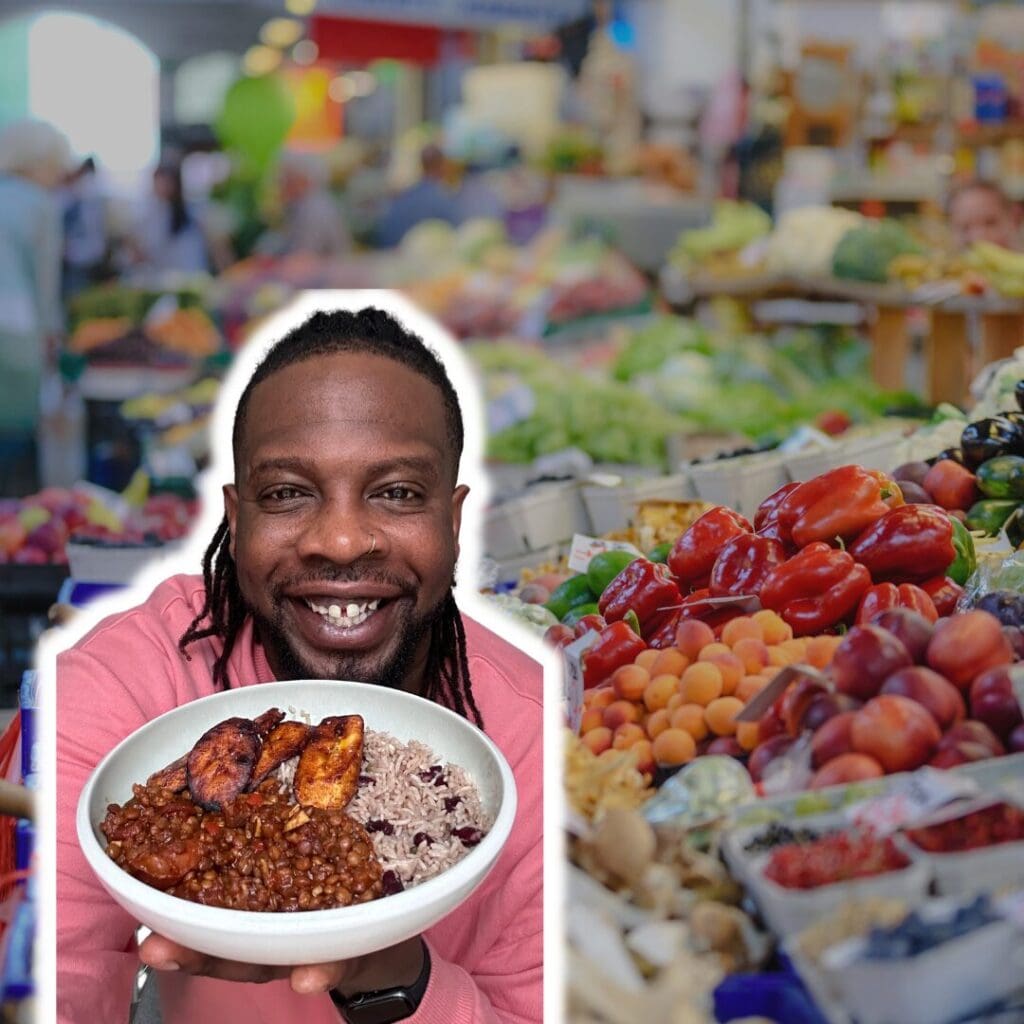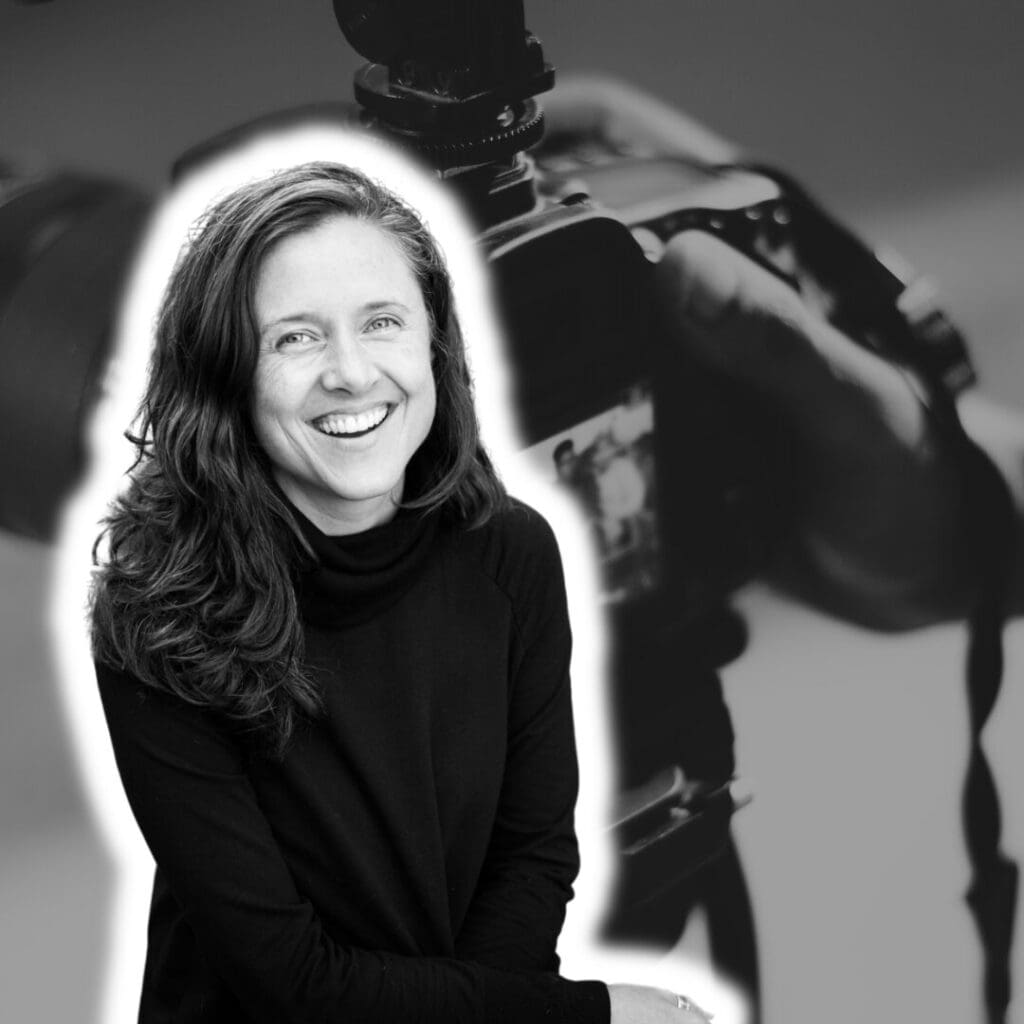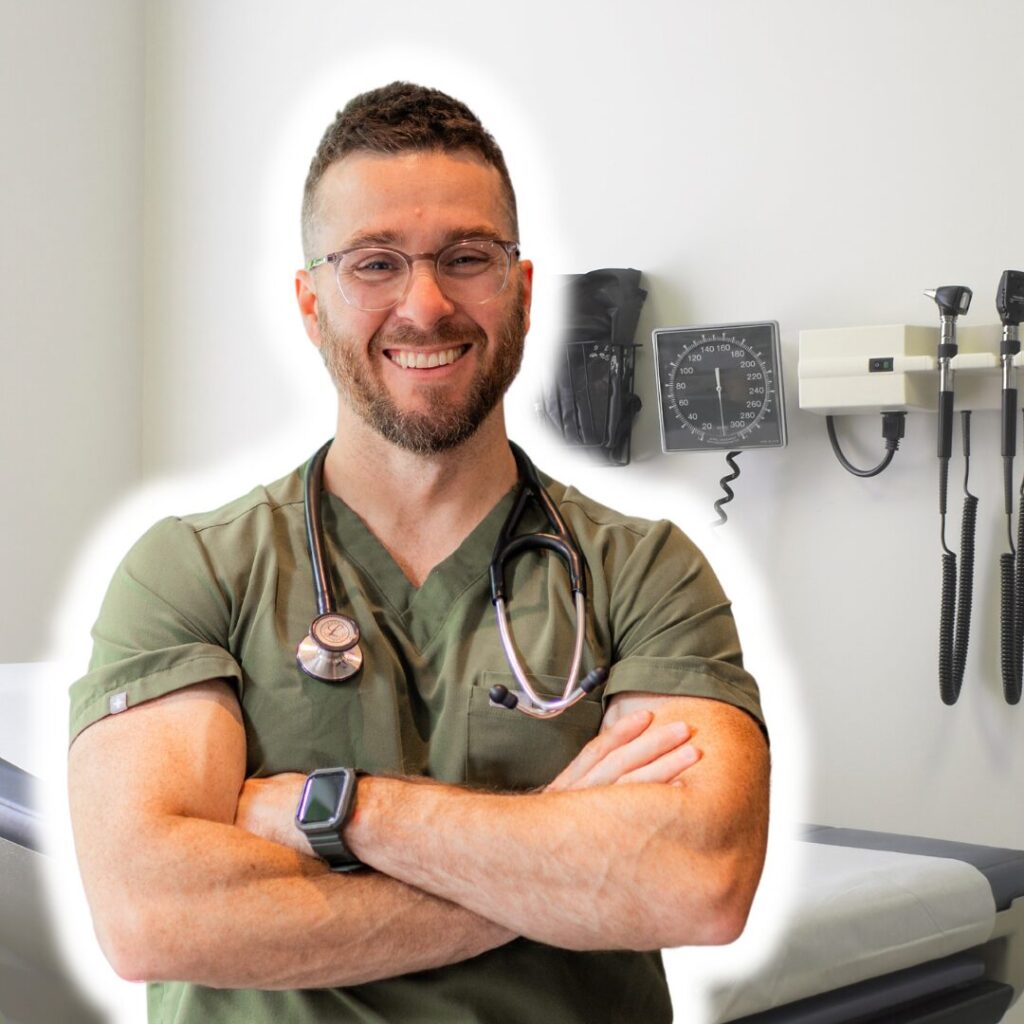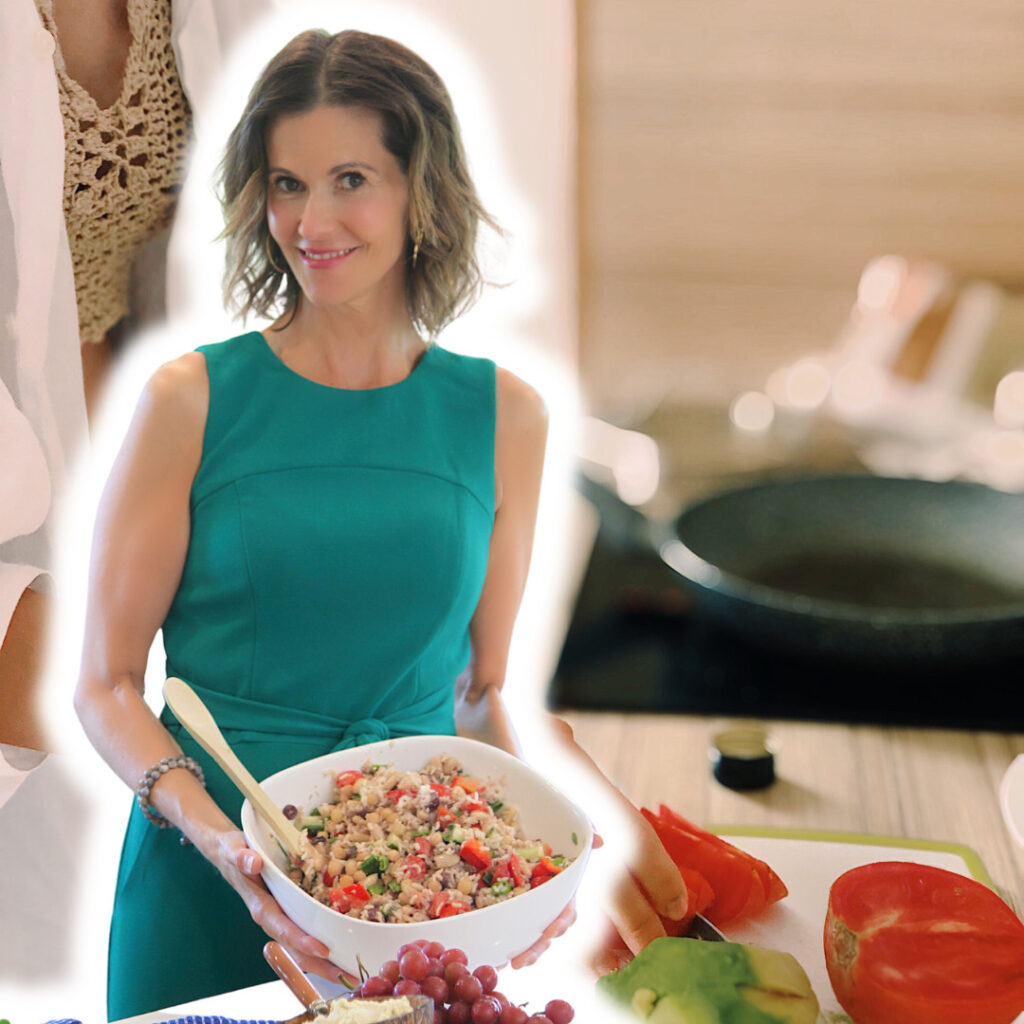Chat with a Vegan: Derek Simnett, nutritionist, YouTuber, and athlete

As part of our “Chat with a Vegan” series, PlantUniversity’s Brighde Reed sat down and spoke with Derek Simnett. Derek is a Certified Nutritional Practitioner based in Parksville, British Columbia. He also runs a YouTube channel called Simnett Nutrition where he talks about how to live a healthful vegan life. We hope you find his experience and advice helpful no matter where you are on your own plant-based journey.
You can follow Derek across multiple platforms:
If you’re interested in learning more after reading this blog post, you can find great resources on the Vancouver Humane Society’s PlantUniversity Platform and subscribe to get free plant-based recipes and be notified when the next interview is posted.
Why did you go vegan?
So, I went vegan because of my love for animals. So, it started out as me learning about the animal agriculture industries and how terribly the animals were treated, and I just started to wanna honour my love for them. So, I started to eat more grass-fed meat, and I started to find the free-range eggs and that sort of thing.
Not only did that become expensive, but I started to learn that I wasn’t really saving any animals’ lives. In the end, they were maybe having a slightly better life, but also, there’s some loose regulations around those terms. Let’s say that. So, as I continued, I just started to eat less of them.
I started to feel better and eventually they just completely got off my plate. There was definitely a time where I could not look at what was on my plate and not see the animal that it once was. And I knew once that started happening, every time I thought, ah, I need to completely give this up.
And along with feeling better and starting to perform better, I just thought, ah, this is definitely the way.
Did going vegan inspire you to start a YouTube channel?
I started my YouTube channel to actually bring traffic towards the nutrition consulting services that I was offering at the time. Because I figured what a better way to let people know who I am and give a little bit of free information out there, you know, then start a YouTube channel.
So that’s what I did, but the YouTube channel kind of took off and I decided I really wanted to do that because I figured I could reach a larger audience than doing the one-on-one consulting. And that is how, that’s how it all started. So, it, yes, it kind of did in a sense. I wanted to show people how to live a healthful vegan life.
What do you talk about on your YouTube channel?
My YouTube channel is mostly focused on helping people make healthy, plant-based foods taste good. We can talk all day about the, you know, the minutia and the details and this study says this and this and that, but really, we know that we have to be eating more whole plant foods and a lot of people just don’t know how to make them taste good or they don’t know how to cook them.
And that’s where a lot of people stumble. So, I do that, but I do talk about how much we should be eating, proper supplementation, and that sort of thing as well.
How do you stay in shape as an athlete?
It’s funny hearing someone call me an athlete, but yeah, I guess I am, you know, I do that, I do activities every day. I live a healthy and active lifestyle, so I do definitely go to the gym every single day or at least, you know, five or six times a week. But another big part of me staying, uh, healthy and fit is to exercise outside of that.
And it’s just going for bike rides, you know, jogs. I try and do some sort of movement every day, if not twice a day if I can. The gym is like my main thing though. And there I do a lot of calisthenics and weight lifting.
How do you think being vegan impacts your training?
The one thing that I noticed right away when I went vegan, I was a runner at the time and I had a lot of joint pain in my ankles and just really all over my body. And I noticed quickly that I didn’t have that and I also recovered a lot faster and I could then go for longer runs sooner.
So that was sort of the first thing I noticed. And now I feel like it’s the same thing. I recover really quickly. My muscles hardly ever get sore, so I’m able to continue to train quite often. I don’t get sick very much. So, I think just, you know, a bunch of different reasons.
What’s a day of eating like for you?
Well, I wake up, usually I’ll have warm water or some lemon water, and then I’ll have a bit of toast and peanut butter or maybe just some fruit. Then usually after that I’ll go to the gym. Sometimes I’ll have a cup of coffee in between that, if I don’t have that jump in my step that I like to have.
And, then after that come home, I’ll have a smoothie or just some leftovers, and then I’ll have usually a small lunch, which could be something just like, oh, probably more, more leftovers, like a small stir fry or something like that. And then for dinner, basically the same, but such a wide variety of foods, whether it be, you know, pastas, like I said, stir fries, lots of tofu, tempeh, beans and lentils.
We absolutely love cooking a bunch of stuff in the Instant Pot. So that’s one of my favorite things to do, make stews and chilis and that in there.
What do you eat after a very heavy workout?
Usually a smoothie is what makes me feel the best. I’ve tried to switch it up and eat other things, but I know that smoothies always make me feel best. For a post-workout smoothie, I’ll have a few bananas in it, and then I will have a cup or so maybe two cups of frozen berries.
I’ll have some ginger. I will have some turmeric in there, a little black pepper to help with inflammation and recovery. And I’ll have a scoop of plant-based protein powder and then some sort of source of omega threes like usually either flax, chia or hemp seed in there. And then I try to get some greens in.
Cilantro is one of my favourite. I know people find that weird in a smoothie, but it’s one of my favorite things to have in there. But also, like parsley. And if I don’t have that, handful of kale or just any sort of mixed green.
What’s your favourite vegan protein?
So as far as food sourced protein, that would definitely be tofu or tempeh. I just never seem to get tired of those. Another one that I’ve been eating a lot lately is actually from a British Columbia-based company called Big Mountain Foods. And I’m not sponsored or anything by them, but I love this product that they have.
And it’s actually a soy free tofu, and I believe that they’re the first company to do this least in Canada and they’re making a tofu out of fava beans. And it’s amazing. It’s a really high source of protein and it’s very similar to tofu.
What’s your favourite hack to make cooking easier?
Definitely making large batches of the calorie rich sources of food at one time. If I’m going to have rice and you know, broccoli and maybe some tofu or tempeh for dinner, I will make a whole bunch of rice rather than just making enough for that meal. And then I have some for the next day. And the same thing goes if I’m cooking potatoes or sweet potatoes, squash, lentils. The Instant Pot has been a huge help for us. I don’t like to meal prep because I get tired of eating the exact same food over and over again.
I don’t like to see this thing sitting in the fridge that I know I’m going to eat like four days from now. But, I know if I have something that I can just take a scoop or something of, and then kind of create a meal around that, that’s always really nice for me. So that’s probably the best hack I have.
What advice would you give to a new vegan?
The biggest mistake that I see new vegans make is they just don’t eat enough calories. It’s because whole plant foods are just not as calorie dense as the animal foods.
So, what I usually recommend or I suggest to people is that they check out a total daily energy expenditure calculator. It’s a lot of words, but it’s a T D E E calculator and that takes in both your basal metabolic rate, but also the energy that you expend throughout the day, whether it be at work or at your activities.
You have to plug in like your age, your height and all that sort of thing, so it’s quite accurate. Then if your goal is to, you know, gain weight, obviously you want to be a hundred, 200 calories above that, if you want to lose weight, a hundred to 200 calories below, and then go into a program like Chronometer or MyFitnessPal and track your calories from there. You shouldn’t have to do it for long because you really can get a good idea of how much you’re eating after just a few days of doing it. But I think that’s a really good way.
And then also you can see sort of the nutrient breakdown to see if you’re getting all your nutrients. But I don’t track very closely myself. I just make sure that I eat enough foods from a variety of plant sources every day. Include a few higher protein sources like tofu, tempeh, lentils, beans. That sort of thing.
And yeah, that’s kind of my best advice.
This interview from PlantUniversity’s “Chat with a Vegan” series was hosted by Brighde Reed of World Vegan Travel and featured Derek Simnett of Simnett Nutrition.
More posts like this
Chat with Ebenezer Odeniyi, vegan advocate and online cook
I’m an online cook; here’s how I advocate for plant-based eating…
I’m a photojournalist; here’s how I advocate for animals using the power of imagery
I’m a photojournalist; here’s how I advocate for animals using the…
I’m a family doctor; here’s what I tell my patients about going plant-based
I’m a family doctor; here’s what I tell my patients about…
Chat with a vegan: Stephanie Redcross West, business coach and marketing strategist
Chat with a vegan: Stephanie Redcross West, business coach and marketing…
Chat with a vegan: Dreena Burton, cookbook author and fascial stretch instructor
Chat with a Vegan: Dreena Burton, cookbook author and fascial stretch…
Chat with a vegan: Pamela Fergusson, Registered Dietitian
Chat with a Vegan: Pamela Fergusson, Registered Dietitian As part of…
